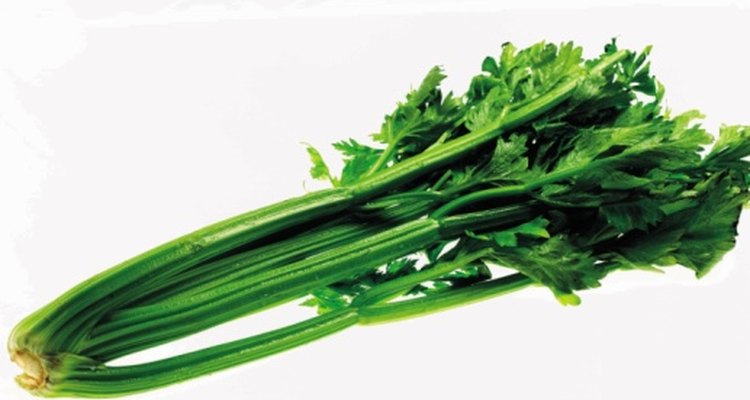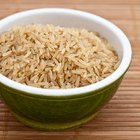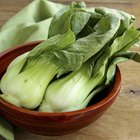
Celery juice is a hydrating juice with many nutritional benefits for the body. Many people who incorporate vegetables juices into their diet typically include celery juice for its fresh taste and nutritional content, but the leaves can also be juiced for additional benefits. Celery leaves contain a high amount of vitamin A and C, potassium, sodium and sulfur, whereas the stem contains different vitamins and minerals.
Vitamin A
According the National Institutes of Health (NIH), the vitamin A that is found in celery leaves "helps form and maintain healthy skin, teeth, skeletal and soft tissue, mucus membranes, and skin." Vitamin A, or retinol, also promotes good vision. Increasing your intake of vitamin A can strengthen the immune system and help fight diseases caused by viruses as well as cancer.
Vitamin C
Celery leaves are a good source of vitamin C, an important antioxidant for the body, states the NIH. This water-soluble cold-fighting vitamin boosts the immune system and fights off new diseases. It is essential in the maintenance of body tissue, bones and teeth and fights free radicals and other signs of aging.
Treating Ailments
As an alkaline food, celery and its leaves are good for treating conditions caused by excess acid in the body, according to Health Care Clinic. Most fruits and vegetables are considered alkaline foods, and eating them can help balance the body's pH level. The leaves are high in magnesium, which is important for hundreds of the body's chemical reactions, according to NIH.
Tips
Juice both the stalk and the leaves of a piece of celery to enjoy all the benefits of this vegetable. Make sure to juice the celery last if adding celery juice to another vegetable juice, as it can become stringy in the juicer. Celery juice can taste bitter, so add the juice of the stalk and the leaves to other vegetables such as carrots or cucumbers, or a sweet fruit such as a green apple.
Related Articles

How to Use Wheatgrass for Washing Hair

How to Use Lettuce for Hair Growth

Food Sources of Betaine

Nutrition Information on Blueberries

The Use of Neem Juice in Skin Care as ...

How to Juice a Daikon Radish

Bok Choy Nutrition

Vitamins for Mental Alertness

How to Juice Kohlrabi

Essential Enzymes for Hair Growth

Can Herbs Flush Cellulite?

Types of Taro

Juicing for Wrinkles

How Long Will Pineapple Juice Stay Good ...
How to Juice Beet Stalks

Fruits & Vegetables Rich in Potassium ...

Herbs to Increase Blood Circulation in ...

What Are the Benefits of Grapefruit for ...

Nutrition in Barley Grass

How to Juice for Colon Health
References
Writer Bio
Lucinda Harper has traveled far and wide, writing about her professional work experiences in education, politics and the beauty industry since 2004. She graduated from the University of California Irvine with a Bachelor of Arts in Political Science.
Photo Credits
Jupiterimages/Photos.com/Getty Images